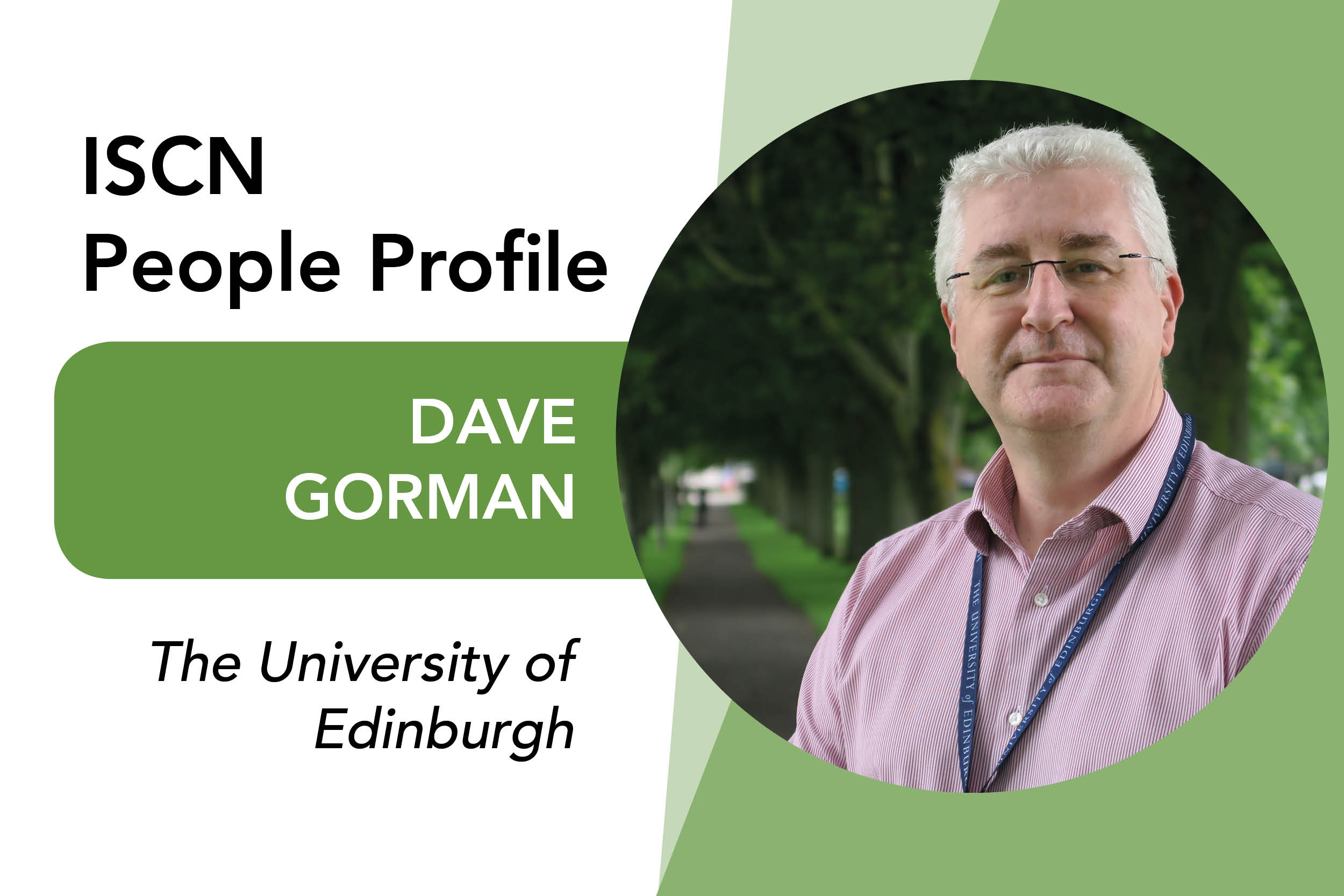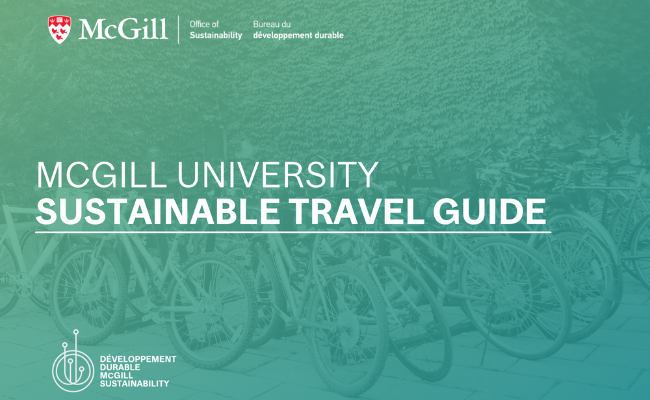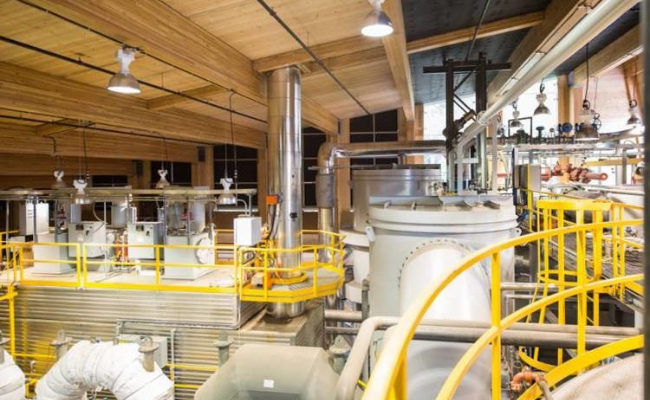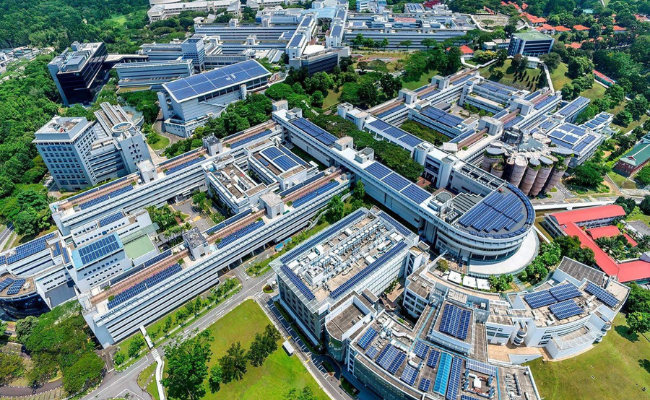Dave Gorman
Dave Gorman is the first-ever Director for Social Responsibility and Sustainability at The University of Edinburgh, a post he has held for 9 years.
Dave and his team support the University to deliver on its commitment to make a positive impact on the world, meet climate targets, consider human rights in activities, and innovate to generate positive social and environmental change in society.
Big Idea(s) for Advancing Sustainability in Higher Education
We have all had to adjust to how we are working over the last two years – any insights that are game changers for you?
I think the last two years of dealing with Covid has taught me three things:
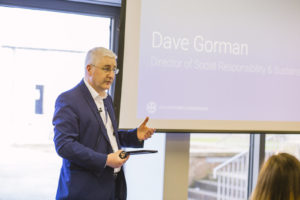
Firstly, that whilst we can indeed work 100% remote and virtual, we shouldn't. Universities are places for ideas and innovation; those ideas flow many times from the serendipitous conversations and can be hard to replicate if life is a series of Teams calls.
Secondly, I learned what a fundamentally important role Universities can play in society and during crises. Our university was doing everything from fundamental vaccine and virus research, to 3-D printing of scarce masks, to emergency community grants, to diverting surplus iPads and laptops to families in need to allow education to continue remotely.
Finally, I learned, just like after the 2008 financial crash – that we can pivot very quickly when we need to and when an emergency is in front of us – so how can we use that knowledge to make the same case for the climate crisis?
Leadership and Inspiration
What does excellent leadership look like to you?
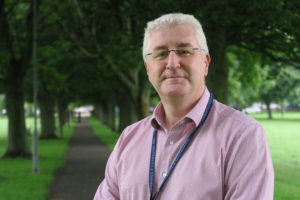 For me, an excellent leader knows and understands the context they work in. That means actively scanning the horizon for emerging issues, knowing their organisation inside out, and understanding their local area and the key stakeholders. A leader has a vision of where we need to go and a sense of how to get there. They know how organisational change happens, and how to communicate well and persuade. They own decisions but share the credit and support their staff fully whilst expecting high standards and strong performance.
For me, an excellent leader knows and understands the context they work in. That means actively scanning the horizon for emerging issues, knowing their organisation inside out, and understanding their local area and the key stakeholders. A leader has a vision of where we need to go and a sense of how to get there. They know how organisational change happens, and how to communicate well and persuade. They own decisions but share the credit and support their staff fully whilst expecting high standards and strong performance.
Sustainability leaders need to create spaces for people to innovate and collaborate, and to ensure they have a measure of resilience – change is hard! Finally, an excellent leader has a certain humility, knowing their limits, sharing praise widely, admitting when they don't know, and they must always keep on learning...
Tenacity and Perseverance
The Climate Emergency we face feels like the greatest challenge of our lifetime – what keeps you inspired to keep working at it?
It can be hard to keep trying - I've been trying to alert society to the urgency of climate change for 30 years, and the IPCC reports just keep coming and emissions keep on rising. But there are plenty of signs of hope. Most people do want to tackle climate change, technology and innovation are moving apace, and as the IPCC says, we have all the tools we need to tackle this crisis.
More fundamentally for me, it's about more than technology and policies, it's about values and fairness. I have children, I want a better world for them. I don't want to be the generation that knew but did nothing. I know that climate change is fundamentally an issue of justice, I believe we owe nature the right to exist, and it's abundantly clear those most affected by climate did the least to cause it. So, when I am struggling, I think of my children, I think about nature, I think about fairness, and I think about the legacy I want to leave - and I go again.

Fun Fact
What is your favourite activity in your spare time?
I love nature and the outdoors and living in Scotland there is plenty to see though I often don't make the time for it that I should. I did my first ever solo wild camping at the age of 52 last summer - I learned that I love it, that 40 pounds on a backpack for 16 miles is hard work and I especially learned why it is that most others I saw were under 40 years of age! This summer I will return with lighter gear and a little more humility.
McGill University releases Sustainable Travel Guide
McGill University has released a new Sustainable Travel Guide to provide guidance for McGill travellers—students, staff, and faculty—on how to factor sustainability into travel decisions, from determining whether travel is necessary, to choosing the best mode of transport or reducing impact upon arrival. It was produced by the McGill Office of Sustainability, in Montreal, Canada, with the expertise of its Climate Officer Divya Sharma.
Travelling sustainably means considering present and future environmental, social, and economic impacts of travel. By reducing emissions of business-related travel, McGill community members contribute to the University’s long-term target to achieve carbon neutrality (net zero emissions) by 2040.
The Sustainable Travel Guide, designed as a checklist, guides readers through four questions that push them to think about how they choose to travel:
- Do I need to travel?
- Can I travel sustainably?
- Can I choose sustainable accommodations?
- Can I reduce my environmental impact further?
Throughout, the guide presents various options depending on the traveller’s needs, whether they are travelling locally or internationally, if they are able to bundle trips or reduce the number of travellers, and more.
Learn more at mcgill.ca/sustainability
Peer Exchange Event Report Back
We held our first ISCN members-only Peer Exchange in March to learn about UBC’s new Climate Action Plan 2030.
Thank you to John Madden, Director, Sustainability and Engineering, Campus and Community Planning from The University of British Columbia and Katrin Schweigel, Coordinator University Alliance for Sustainability, Freie Universität Berlin who led an interactive discussion with attendees.
The session provided an opportunity to engage in open dialogue with other members about climate action planning and was attended by representatives from 15 member institutions in 12 countries on 4 continents.
We plan to host regular member-only Peer Exchanges throughout the year, so if you are interested in convening a session please email your ideas to [email protected].
 “I really enjoyed the discussion and hope that folks were able to gain some insights and ideas for the work they are doing. I always enjoy hearing what others are working on and finding ways to accelerate solutions based on mutual learning”.
“I really enjoyed the discussion and hope that folks were able to gain some insights and ideas for the work they are doing. I always enjoy hearing what others are working on and finding ways to accelerate solutions based on mutual learning”.
John Madden, Director of Sustainability and Engineering, UBC
NTU opens sustainability office
Nanyang Technological University (NTU) in Singapore has opened a new Sustainability Office to coordinate and drive NTU’s sustainability efforts in a holistic and integrated way. To build on this momentum, the University has also released a 15-year Sustainability Manifesto. The Manifesto reflects NTU’s commitment to decarbonisation and sustainable development and will guide the University towards their goal of carbon neutrality by 2035.
The NTU Sustainability Manifesto recognises that sustainability is a grand and complex global challenge involving all sectors and all of society. To that end, in addition to striving for carbon neutrality, the University aims to:
- Incorporate sustainability in its newly established interdisciplinary common core curriculum for all undergraduate students;
- Launch new undergraduate, postgraduate and continuing education programme options on different aspects of sustainability;
- Support and promote the principles of the United Nations Sustainable Development Goals across the pillars of education, research, innovation and community;
- Achieve 100% Green Mark Platinum certification for all eligible buildings on the main NTU campus; and
- Reduce by 50 per cent NTU’s net energy utilisation, water usage, and waste generation, by March 2026, compared to the baseline levels of 2011.
Learn more about NTU's sustainability work.
